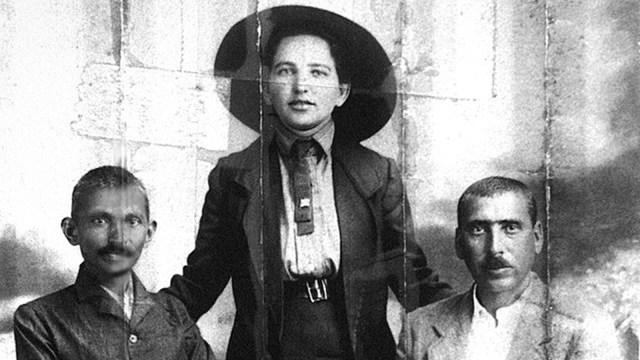
“Palestine belongs to the Arabs in the same sense that England belongs to the English or France to the French.” This statement, made in November 1938, as war clouds were hovering over Europe, is perhaps among Mahatma Gandhi’s most widely quoted statements. It is also his most misunderstood statement.
The ongoing Israel-Hamas violence has seen this quote resurrected. Some of those who quote these lines are non-Gandhian to the core and support various forms of political violence. Some cherry-pick and conveniently ignore Gandhi’s other positions; for example, his opposition to the Partition of India and his absence from the Red Fort when Jawaharlal Nehru unfurled the national flag. Above all, many may not have read the article — ‘The Jews’ published in Harijan on November 26, 1938 — in its entirety. Indeed, even those who derided him as a member of the bourgeoisie and British agent during the freedom struggle find it useful to quote this statement to explain their position on Palestine.
A few unpleasant questions are relevant. Was Mahatma Gandhi as consistent on Palestine as the hordes of scholars, elites and populists portrayed him to be? Did he understand the issues before wading into the quagmire? According to his own admission, he understood Judaism only through the lens of Christianity and its centuries of theological prejudices against the Jews. Despite his exposure to Western culture in Britain and Jewish friends in South Africa, Gandhi never understood, let alone appreciated, the Jewish longing for a homeland. While he accepted and endorsed Prophet Mohammed’s injunctions on the holy land, he refused to grant the same courtesy to the pre-Islamic Jewish claims.
Moreover, carefully perusing the hundred-volume Collected Works of Mahatma Gandhi reveals some interesting but damaging truths. References and details of several meetings of Gandhi and Jewish leaders were conspicuous by their absence in the Collected Works; for example, on October 15, 1931, two Zionist figures — President of the World Zionist Organisation Nahum Sokolov and member of the Zionist Executive Selig Brodetsky — met Mahatma Gandhi when the latter was in London for the Second Round Table Conference on India. Likewise, in July 1937, Gandhi passed on an unsigned statement to the Jewish Agency in Palestine through Hermann Kallenbach, his comrade-in-arms during his South African days. This is conspicuously missing in volume 96 of the Collected Works, devoted exclusively to the Kallenbach Papers.
Explaining a rather systematic absence of any references remotely sympathetic to Jews and Zionism in Gandhi’s papers, his long-term confidant and secretary, Pyarelal, later admitted: “… there are some materials I have decided to suppress…. Gandhi’s views on Israel, for a start.” Left only with a sanitised and politically correct version, we will never completely understand how Mahatma Gandhi viewed and gradually shifted his position vis-à-vis Palestine.
Even without these missing documents and narratives, Gandhi becomes less of a Mahatma regarding the Israeli-Palestinian conflict. Was he consistent in his demand for non-violence vis-à-vis both parties to the conflict? The answer is an emphatic “no”. In the same article where he remarked that Palestine belongs to the Arabs, Gandhi made two closely-related observations. He demanded Jewish non-violence against Hitler; not just through words and actions, but even in their hearts. At the same time, Mahatma Gandhi, on Arab violence, wrote: “I am not defending the Arab excesses. I wish they had chosen the way of non-violence in resisting what they rightly regarded as an unwarrantable encroachment upon their country. But according to the accepted canons of right and wrong, nothing can be said against the Arab resistance in the face of overwhelming odds.”
There can be only one possible explanation for his accommodative position towards Arab violence. As he was unsure of Arab acceptance of his calls for non-violence, he settled for “understanding” their stand, at a time when Arab violence in Palestine was peaking (1936-39). He was unable or unwilling to consult the Arabs of Palestine to practise non-violence against the Jews when he unequivocally demanded the latter to practise it.
“Palestine belongs to the Arabs” is not only a selective reading of Gandhi’s views, which his close confidants significantly censored but also overlooks the fundamental contradiction in his views on Jewish and Arab violence in Palestine. Thus, when it comes to Palestine, even Mahatma Gandhi could not live up to his own gold standards of non-violence.
Kumaraswamy, who teaches contemporary Middle East in Jawaharlal Nehru University, is the author of ‘Squaring the Circle: Mahatma Gandhi and the Jewish National Home’